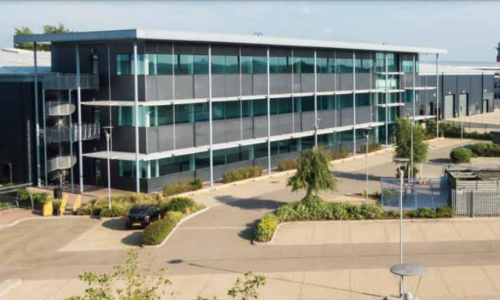
Greenplan, a DHL financed start-up company, is launching a powerful algorithm for optimizing delivery routes and stop sequences in logistics.
The algorithm leverages the full potential of smart routing, using all information and data available to optimize transport routes in an entire delivery area, while existing solutions are dealing with smaller sub-areas to cope with complexity.
In doing this, Greenplan sets a new benchmark. It bolsters the industry’s efficiency and sustainability efforts without making compromises on the quality of planning.
The algorithm was developed by scientists from the University of Bonn in cooperation with DHL logistics experts. Greenplan supports customers with their road freight business and last-mile deliveries as well as field service providers with their service schedules.
“We at Greenplan want to help make the industry more efficient and sustainable. With our smart and powerful algorithm, we are tackling the complex task of efficient route planning by offering a precise and reliable solution that can be integrated into existing systems,” explained Dr Clemens Beckmann, CEO at Greenplan.
“In contrast to nearly all tools on the market, Greenplan – for the first time – calculates routes according to historic traffic information available on street-level. This, in turn, enables our customers to save up to 20 per cent costs compared to standard route optimization solutions and to lower their carbon footprint accordingly, simply by reducing kilometers driven.”
Customer needs are constantly changing: The growing e-commerce market fuels demand for same-day deliveries while the contract logistics market increasingly looks at just-in-time processing.
The Greenplan algorithm is equipped for such cases and capable to digest not only the targeted addresses but also individual delivery time windows on shipment level.
By considering time-of-day-dependent, street-specific travel times, Greenplan also finds the optimal starting time of delivery tours. These improved tours increase the predictability for customers and appear natural to drivers.
The solution also supports contingency planning in case of incomplete data availability and considers system- relevant variables such as different loading types or adherence to regulations. These features offer a robust solution that is adaptable to a variety of issues or customized changes.
Greenplan empowers customers to drive their own green strategies by enabling CO2 emission reductions through shorter distances and fewer tours. Greenplan not only provides visibility on the estimated carbon footprint based on planned delivery routes, it also considers emissions per vehicle type to plan the most CO2-efficient routes.
Moreover, the algorithm is capable of considering specific parameters for electric vehicle fleets, like range limits per vehicle. Altogether, the smart algorithm leads to decreased costs and lower CO2 emissions for the same delivery work. This helps not only logistics companies, but also supports field service providers who need to plan schedules of their workforce.
Logistics is a highly fragmented industry that delivers a multitude of solutions for individual processes.
To realize the full potential of capacities and optimize resource management, Greenplan teamed up with the Research Institute for Discrete Mathematics at the University of Bonn to engineer a new smart algorithm capable of meeting customers’ unique business needs, while still ensuring short computing times.



